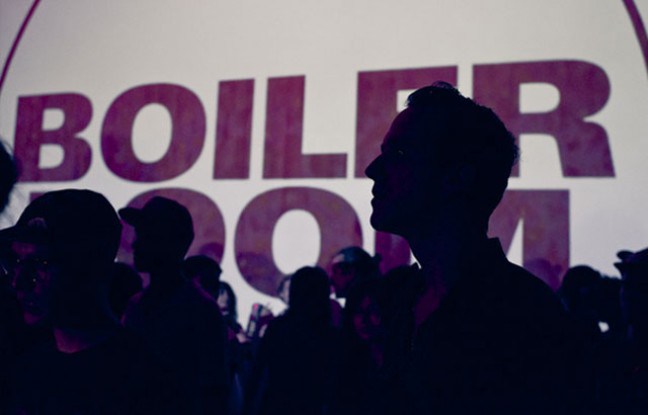
The creative industry is not a particularly female-friendly place, and in the music industry this feels an especially palpable truth. In the past month: Rick Ross said he doesn’t sign female rappers because he’d end up fucking them, punk band the Dickies “joked” about sexual acts with minors, and Giegling co-founder Konstantin said that “women are usually worse at DJing than men”. If these seem like relatively esoteric examples, just consider any festival line-up and it will tell you exactly how underrepresented women are in the music industry. Unfortunately — albeit unsurprisingly — this is especially the case for women of colour (WoC); who are sexualised and exoticised, and whose concerns are often ignored. In a space dominated by cishet white men, there is little room for WoC (and if you’re about to bring up Beyoncé as if she’s a representative example then I do not even know where to start with you).
For all the backwardness in the industry, there have been allies too — and organisations like Boiler Room have been at the forefront of these. The online music channel is a platform for artists around the world to livestream their sets. Their ethos, in stark contrast with the “bro” culture that dominates electronic music, has seemed to be one of inclusivity. Last year, they famously made moves to target the misogyny that dominates their comments section, bringing in moderators to try and tackle the vile remarks often found under the videos of female DJs (such as: “She’s gotta be giving someone good head”). It felt like a positive move that showed some awareness of the problems faced by marginalised people in the scene — which is why this latest incident feels especially puzzling.
Boiler Room released a film about Glasgow’s New Wave of artists, aiming to shed light on the city’s burgeoning local DIY scene.
https://www.youtube.com/watch?v=MqHxZ6op-Lw
One of the interviewees was WoC Sarra Wild — a promoter, DJ, and radio host. Sarra, along with Femme Fresh, Mara, and DJ Sycophantasy, talks about the difficulties of female representation in the local Glasgow scene and how it’s starting to change. However, Wild has noted since the film’s release, that Boiler Room made a strange cut to her interview – namely by omitting her use of the phrase “white men”, and so she called them out on it.
Boiler Room’s initial response, from Head of Film Joe Alexander, was as follows:
https://twitter.com/katalunia_/status/892304948096110592
Quotes like: “We at no point set out to highlight any negativity” and “the ‘white men’ phrase would’ve been divisive within this film and would have caused all sorts of political repercussions that I’m sure you’re aware of”, feel particularly jarring.
The strange fear that white people have of being called “white” seems to underpin all of this, as if it exposes something unwieldy that no one wants to talk about, or as though it is in some way offensive. But if white people really want to be an ally to BAME people — especially BAME women — in industries in which we are so underrepresented, they have to own their race and cop on. We can only tackle the racist and misogynistic problems in the scene if we acknowledge that they exist in the first place. This is why Boiler Room’s response stating that they did not feel that they could do the subject justice in a short film feels a bit half-baked. Surely even one mention of it is a springboard for others to have that very necessary discussion?
After further emails and tweets — including from established electronic artists like Laurel Halo — Joe Alexander responded again, this time more apologetically, mentioning the possibility of a project in future that might tackle these discussions more head on:
https://twitter.com/joe_p_alexander/status/892346120164302854
Wild’s response succinctly called out the problems at hand:
https://twitter.com/sarrawild/status/892454220846301184
“You and others like you in your position have the option to ignore this,” she wrote, “I as a WOC don’t. Never have. The sooner you all accept that this scene is not equal and that minorities need to be represented and most importantly heard, the soooner [sic] we can all go back to enjoying the fucking music and being one.”
And this is exactly it. Music is such a beautiful, powerful thing that brings so many people together. But until we acknowledge the prejudice and the discrimination that unfortunately exist within the industry, and until those in positions of privilege help to tackle that, then it’s really hard to enjoy it for what it is. Boiler Room’s gaffe was, I hope, an oversight, not to be repeated: their past handling of social issues makes me want to believe this, at least. The overriding problem with the cut to Sarra Wild’s speech is how it is symptomatic of a much wider problem in the music industry, which facilitates ignoring WoC voices for fear of upsetting white guys.
We reached out to Boiler Room for comment but received no response. However, they posted the following apology online last night.
An apology – please read pic.twitter.com/3Z1dsd75TA
— BOILER ROOM (@boilerroomtv) August 3, 2017
Speaking to gal-dem having seen the apology, Sarra Wild said: “I mean, big up for owning it — at least they now know. But do you know what I love about this? That it took a woman of colour calling them out for them to realise all this… [Glasgow] always had this amazing DIY scene, but what’s changing about it now is the politics — the representation, the diversity. Until about two years ago, no one was booking women. It’s not entirely Boiler Room’s fault — it’s partly reflective of the scene here, but I really wanted to start that discussion with this film. White people are more concerned with being called racist than we are at being victims of racism, it’s crazy. I want so badly to do right for minorities, and I’m so aware that I’m in a position to change shit — but more people need to speak up.”








